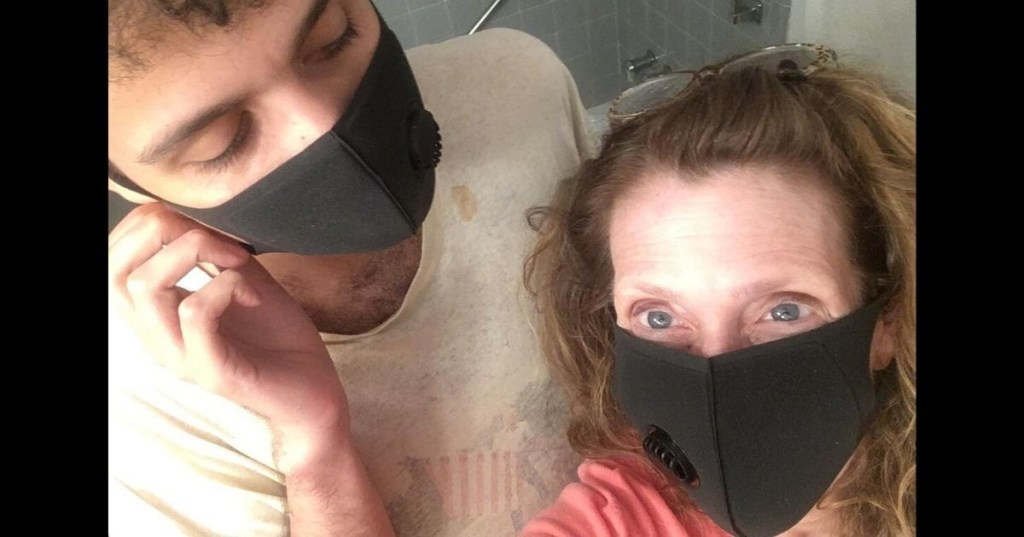As the coronavirus pandemic continues sweeping its way through the world, public health officials everywhere are scrambling to figure out the most effective ways of mitigating it. One of the measures that’s proving to be helpful is universal mask-wearing. Though wearing a cloth mask doesn’t offer much protection from getting the virus, it does prevent you from spreading the virus—which you may be carrying and not know it—by catching droplets as soon as they leave your mouth. That means we can significantly slow the spread of the virus in public places, but only if everyone wears a mask.
Though the idea is simple, it would be wrong to say that wearing a mask is easy for everyone. As a commenter on one of our recent posts about mask policy protester pointed out, masks can be extra challenging for people with autism or other sensory issues—but that doesn’t change the public health reality of the pandemic.
“My son has autism and lots of sensory issues,” wrote Joan Dukovic. “He’s having a real hard time wearing a mask. I could probably get a medical exclusion from his doctor, but I wouldn’t dare!! He will have to learn to deal with it. I’ve raised him to be a responsible citizen, which sometimes requires sacrifices.”
“Today we were buying some plants at an outdoor vendor,” she continued. “He let me put his mask on him and wore it as we shopped for about 15 minutes. Then he wanted to take it off. We were nowhere near anyone else, but I gave him the choice of wearing it or going to wait in the car. He chose the car. Which is where this woman belongs, in my opinion. We’re all in this together. If you can’t wear a mask to help keep others safe, stay home! Order delivery. Kindness matters, especially when it might keep people from getting sick or dying!!!”

Upworthy reached out to Dukovic to learn more about her and her son’s unique perspective and experiences. She is a single mom to her 30-year-old son, Chris, who has severe classic autism and is functionally non-verbal. Dukovic mentioned that her son is prone to meltdowns, which can include yelling and physical aggression. She claims it’s been difficult getting him to wear a mask in public. But she knows it’s important to teach him to do it anyway.
“When I first realized that he would need to wear a mask, I knew I would need to help him develop the skills and tolerance he’d need,” Dukovic says. “That’s basically what we’ve been doing for his whole life whenever a new challenge presents itself.”
She consulted with her network of friends—her “village” she calls it—and got some great ideas. Some were using visors for their adult children, but Dukovic knew that would also be a challenge for Chris because of his sensory difficulties.
“But I totally believe in him, and he believes in himself,” says Dukovic. “So, we’re doing it incrementally. I started by wearing a mask in his presence but not asking him to try. Then we had a graduation drive-by parade where I knew his peers would be wearing masks. Before we left the house, I told him everyone would need to wear their masks if they got out of their cars. And we tried it out, but he wouldn’t put one on. But when we got to the meeting place and he saw friends wearing them, he agreed and let me put one in him. Peer pressure at its best!”

Dukovic says that she believes Chris will build up a tolerance to mask-wearing over time. “I’m not sure how much he understands about the virus,” she says, “But he knows germs can make us sick. And he knows it’s important to be kind and respectful to others.”
“I believe in the Golden Rule,” says Dukovic.”I believe we all have a responsibility to look out for each other. This virus is highly contagious, and a lot of transmission involves pre- or non-symptomatic folks. People are suffering and dying from it. If my son and I can do something as simple as wearing a mask, I believe it’s our civic duty. And, well, it’s really not simple for my son. Not at all, but he’s still a member of society with the same responsibilities as all citizens.”
The same responsibilities as all citizens. That truly sums it up. This is an act of collective solidarity we’re being asked to participate in to protect our fellow Americans. What could possibly be more patriotic than making a sacrifice for the greater good of your country?
For the folks who resist wearing a mask even though they are perfectly capable of doing so, Dukovic has some advice:
“I guess my message to anyone thinking about not wearing a mask is to think hard about your decision. Think about the essential workers and all the nurses and doctors and people on the front lines. Think about the vulnerable older population in nursing homes who would most likely die if one of their caregivers brought the virus into their facility. Think about them gasping for breath, alone and scared. Ask yourself, is it more important to be ‘right’ or “‘free’ or ‘comfortable,’ or is more important to be kind and considerate in order to prevent the suffering of others and possibly save someone’s life? If my son can do it, anyone can do it. And should.”
Well said, madam. And well done raising a responsible citizen who can serve as an example to others.
































